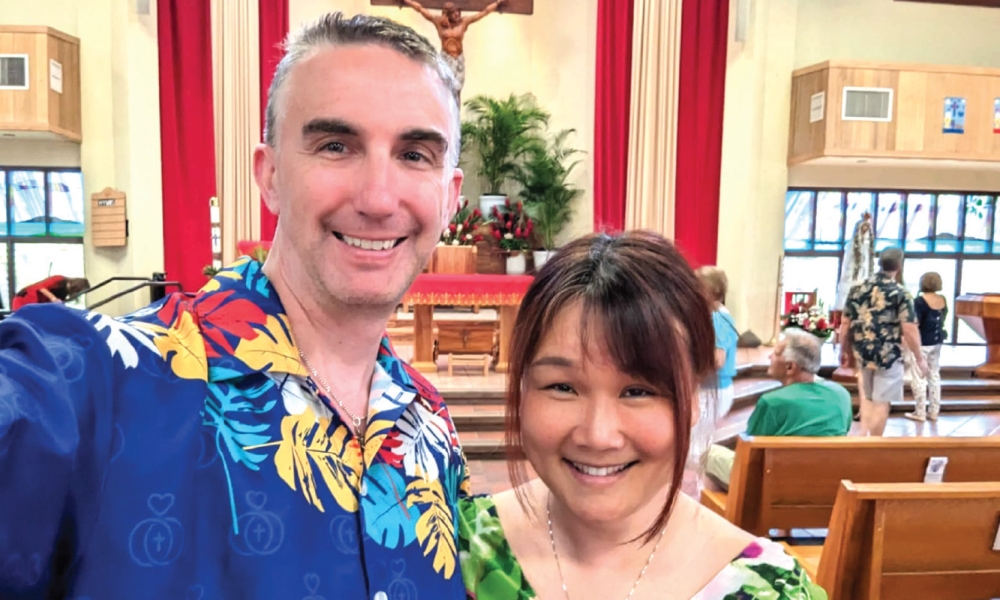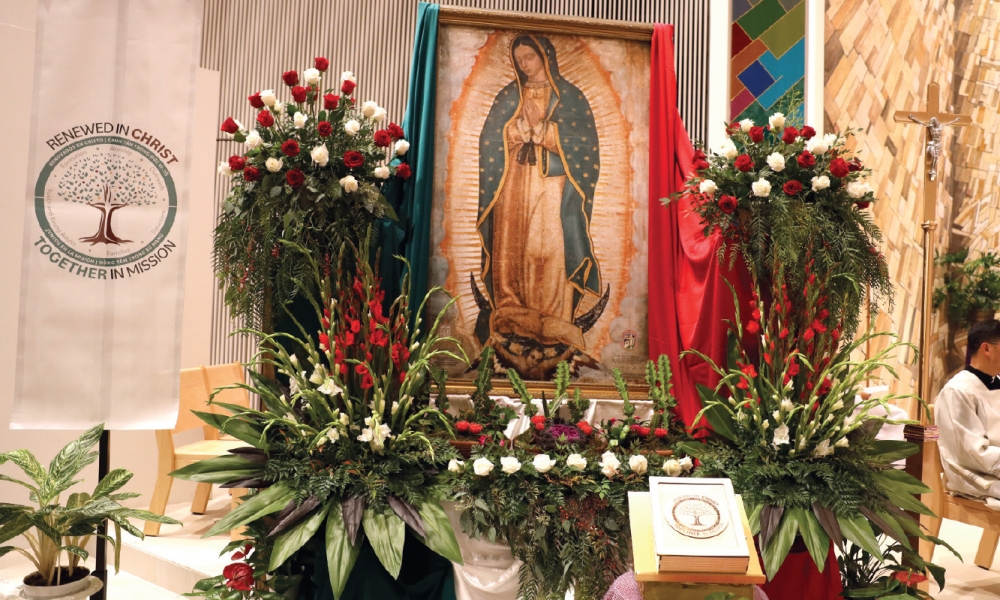
The Journey to 2031: Reflection on the Pastoral Plan for Family
Colin and Myra Haubrich
Colin and Myra Haubrich
Briefly summarize your expectations of the collaboration process when the Planning Action Team for Family began and how they may have changed over time.
We expected to learn how the planning works, understand our diocese's needs, and do our best to contribute in the best ways possible. We also hoped to share our experiences and dreams for what an active and vibrant diocese looks like that can support the Bay Area. Serving in the marriage ministry, we were also curious and hopeful about what more the diocese could do to support marriages better. As we progressed, it became evident that our community yearned for more robust support for families, reinforcing our shared mission.
How has working on the pastoral plan family priority for the diocese been personally and spiritually transformative for you?
This work has made us realize how important family is in our faith. We appreciated how the Holy Spirit led the process with prayers, reflection, and open discussion. It also reaffirms how others care about strong marriages, families, and catechism for our children.
If you had to choose one or two words that encapsulate your experience as a planning action team member and pastoral planner, what would it/they be and why?
We felt energized and encouraged. Encouraged about the new direction the Diocese is taking to focus on rebuilding our Catholic community - starting at the root - the family. We are invigorated by the shared commitment to our faith and the prospect of growing together through this planning process.
What facet of the family priority action plan excites you most?
We were drawn to the idea that parents are the primary teachers of children’s faith. We explored how to encourage parents’ involvement through the catechist process to prepare for the sacraments and live our faith through them.
Which aspect of the pastoral plan for family do you feel is the most notable change we can look forward to?
We are looking forward to the development of healing ministries. Healing is essential for all Catholics; our Lord is the Divine Physician. By inviting Jesus’ healing into our brokenness, we can be freed and restored into a fully integrated person in mind, body, and spirit. This is important for the diocese because to grow closer to Jesus, we need to remove our blockages to open our hearts to receive him.
Can you comment on the challenges we face as a diocese in implementing the action plan for a family?
It is a great challenge to attract ‘helping hands’ and elicit genuine commitment from our busy community in the Bay Area. We have encountered this in the ministries in which we are involved. First, our diocese must work to ignite the desire to prioritize God as the center of family life. Only then can we build a welcoming community for families to help and support each other daily, in faith formation, and within family-friendly environments.
How have you grown in your understanding of family ministry?
We have learned that family ministry is so much more than just marriage and kids; it encompasses all aspects of the family from birth through death and all vocations whether someone decides to get married, remain single, or separate. Working in marriage ministry has been our primary focus; however, after collaborating on the pastoral plan for the family, we feel we have become more sensitive and open to a greater range of a family's needs.
Myra Haubrich is an engineering leader at Salesforce and an adjunct faculty member at San Jose State University. Colin Haubrich is an Information Technology leader at Wisk Aero. They recently served as the Bay Area leaders for Worldwide Marriage Encounter and have been involved in the marriage ministry since 2013. They are parishioners at Saint Leo the Great Parish and enjoy traveling together and spending time outdoors.

